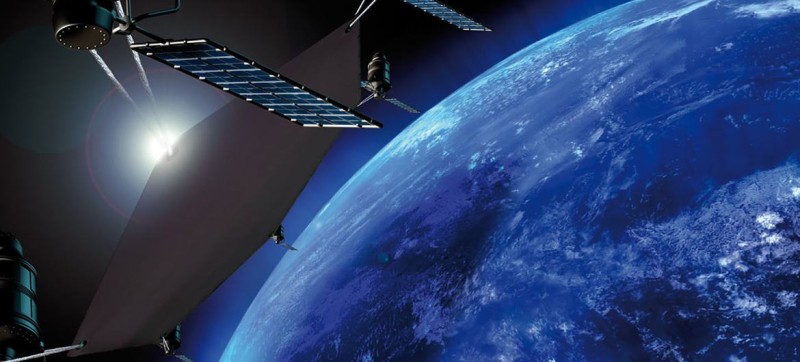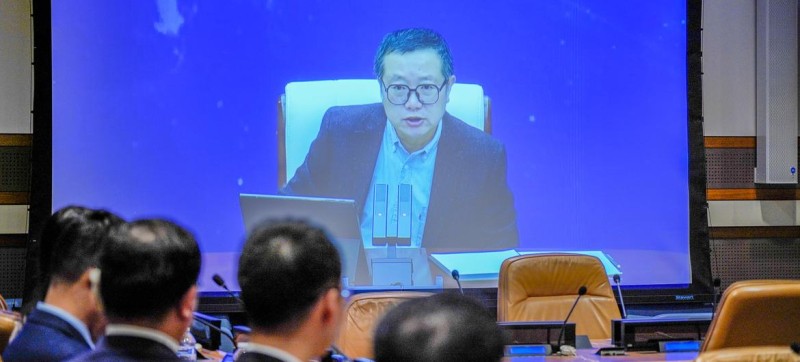Play video

© WMO A satellite orbits over Earth.
“There is no doubting the importance of the current foundations for the sustainability, from environmental protection to the fight against climate change, and green lifestyles. In the foreseeable future, upholding all these principles will be fundamental if humanity is to thrive.
To continue to grow, one must get out of the cradle, and it’s the same with the humanity. To achieve a genuinely sustainable future, we must go beyond the Earth, our cradle. Otherwise, what Arthur C. Clarke wrote in 2001: A Space Odyssey may come true: ‘In the midst of plenty, they were slowly starving to death’.

UN News Chinese Sci-fi author Liu Cixin talks to UN headquarters remotely to initiate the celebrations for Chinese Language Day.
The modernization of all societies will need far more resources than our planet can provide, and this makes development a threat. But we could find whatever we need to survive and develop on the eight planets and asteroid belt of our Solar System, including water, metal, organics, and fuels for nuclear fusion; If the Earth is able to feed 100 billion people in total, then the resources in the Solar System could support the population of 100,000 Earths.
However, whether we hold on to Earth or dive into the universe, sustainable development needs the non-stop progress of science and technology, but the signs are not that promising.
Science fiction authors thought that 2023 would see magnificent space cities are moving on the geosynchronous orbits, with the Moon a suburb of Earth; cities on Mars, with millions of people living there; massive mining operations in the asteroid belt and even over the ice-covered seas of Jupiter and beyond the orbit of Neptune; and human beings exploring new worlds.

Unsplash/Markus Spiske Information technology has ‘leapt forward’ over the past 30 years.
The only area where the reality of 2023 matches the imagination of science fiction is in the development of information technology. In the past 30 years, information technology has leapt forward far faster than other technologies and has penetrated all aspects of human society to revolutionize people’s life.
Nevertheless, this conceals the slow progress of other scientific and technological fields, creating an illusion of rapid technological progress in an all-round way. If the technological progress brought by scientific development is regarded as a big tree, then the most accessible fruits on the tree have been picked up today.
To get to a truly sustainable future, we need a greater spirit of pioneering and entrepreneurship. The international community needs a longer-term development plan, as well as full attention to, and investment in, basic research and technological innovation. Many undertakings in this area may only be accomplished with large-scale international cooperations, and the United Nations can undoubtedly play an important role in it.
Yet, the international community still suffers from division and confrontations, even when all mankind is facing common challenges. A conventional disaster occurs locally, and other parts of the world can offer help; but a doomsday crisis puts the entire world on the brink of destruction, and no one will come to rescue us.
But once the entire global society faces the doomsday crisis in science fiction, I think human beings will still come together to respond to the crisis). Collectively, we have the ability to self-regulate, in the way that we interact with nature.”
Liu Cixin was speaking at the UN as part of the Chinese Language Day celebrations on 20 April. You can watch the full event here

